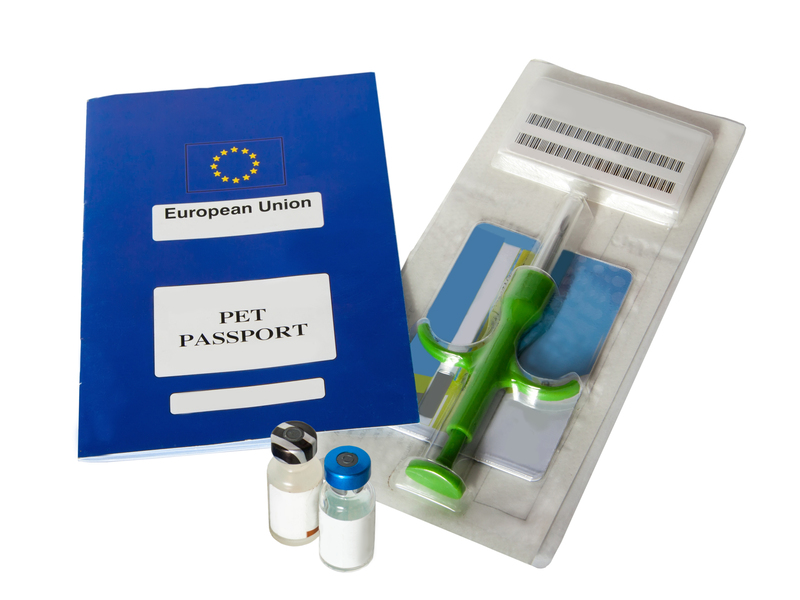Why You Should Think Twice Before Moving a Piano Alone
Posted on 24/06/2025
When the time comes to relocate a cherished instrument, it's tempting to save money and move your piano yourself. However, moving a piano is notoriously challenging and dangerous for several reasons. This comprehensive guide explains why you should think twice before moving a piano alone, exploring the risks involved, the expertise required, and the long-term consequences of tackling this task without expert help.
Understanding the Value and Complexity of Pianos
Pianos are more than just musical instruments--they are prized possessions, sentimental heirlooms, and intricate machines. Each piano, whether it's a grand, upright, or digital model, contains thousands of delicate parts. The weight, size, and fragility of pianos make them particularly tricky to handle. That's why moving a piano is not a standard DIY project.
- Weight and Size: Even small upright pianos regularly weigh more than 300 lbs, while grand pianos can exceed 1,200 lbs.
- Delicate Structure: The internal frame, strings, and hammers are sensitive to bumps and jolts.
- Sentimental Value: For many, pianos carry immense sentimental and monetary value.
The Hidden Dangers of Moving a Piano Alone
Before attempting to move your piano by yourself, it's critical to recognize the numerous hazards that come with a DIY approach:
Physical Injuries
- Back and Muscle Strains: Lifting hundreds of pounds improperly risks serious injuries, from muscle strains to herniated discs.
- Finger and Toe Injuries: Mishandling can lead to crushed fingers or toes beneath the instrument.
- Slips, Trips, or Falls: Navigating stairs or uneven surfaces increases the chance of accidents.
Damage to the Piano
- Internal Damage: A small drop or bump can detune, warp, or break sensitive components.
- Exterior Scratches and Dents: Even careful movers may accidentally scrape walls or furniture, damaging the finish of your piano.
Harm to Property
- Wall, Door, and Floor Damage: Pianos often mar plaster, paint, or hardwood flooring during awkward moves.
- Broken Steps or Railings: Homes aren't built for heavy objects to be slid or dropped, risking structural damage.
Emotional and Financial Costs
- Repair Bills: Fixing damage to your piano, your home, or your body can be costly.
- Lost Value: An improperly moved piano often loses value--sometimes irreparably.
It bears repeating: Moving a piano on your own can result in personal injury, costly damages, and regret.

Why Professional Piano Movers Make the Difference
Considering the risks, using professional services is the smart, safe way to relocate your cherished instrument. Here's why trusting expert piano movers pays off:
Specialized Equipment and Techniques
- Appropriate Moving Tools: Pros use piano dollies, skid boards, safety straps, and protective blankets.
- Packing Materials: Movers wrap and cushion fragile parts, safeguarding the instrument through every doorway and on every step.
- Safe Load Distribution: Knowing where and how to lift prevents unnecessary pressure on vital structures.
Trained, Experienced Teams
- Collaboration: Teams work together efficiently, communicating and maneuvering with precision.
- Expertise: Movers understand all types of pianos, from spinets to baby grands, and know the unique requirements of each.
Insurance Coverage and Accountability
- Liability Protection: Should anything go wrong, professionals are typically insured, shielding you from major repair or replacement costs.
- Peace of Mind: You gain confidence knowing your instrument is in capable hands.
Common Myths About Moving a Piano Without Help
Many people underestimate the complexity of piano moving. Here are some widespread--but risky--misunderstandings:
- "I Just Need a Few Friends": Untrained friends can actually increase the risk, since coordination and specialized skill are essential.
- "It's Just Heavy, Not Fragile": Pianos contain delicate strings and components which can misalign or break on impact.
- "I Can Rent Moving Equipment": While standard moving gear is helpful, most rental equipment isn't tailored for piano relocation.
- "I'm Just Moving It a Short Distance": Most damage occurs from brief lifts or turns around tight corners in the same home.
Don't let these myths lure you into costly and dangerous mistakes.
What Really Happens When You Try to Move a Piano Yourself
To better understand why moving a piano on your own is a risky proposition, consider what's typically involved when amateurs try to do it alone:
- Inadequate Planning: Most DIY-ers underestimate what's required, bringing too few helpers or lacking key supplies.
- Lifting and Maneuvering: The awkward shape and immense weight make it hard to balance and control the piano.
- Navigating Doors and Stairs: Turning or tilting the piano even slightly can damage both the instrument and your home.
- Transporting Safely: Even if you manage to load the piano in a vehicle, securing it against movement during transport is challenging.
- Offloading and Placement: The same risks appear again in reverse, with often-tired helpers and less room to maneuver.
At every stage, an amateur mover faces obstacles that could end in injury or irreparable damage. That's why the majority of professional movers get called after a failed DIY attempt.
Different Pianos, Different Challenges
Not all pianos pose the same moving risks. Here's why you should think twice before moving any type of piano alone:
- Upright Pianos: Tall and heavy, their center of gravity makes them tricky to tilt and transport through tight spaces.
- Grand and Baby Grand Pianos: Removable legs and pedals add layers of complexity; correct disassembly and reassembly are musts.
- Console and Spinet Pianos: Though generally lighter, their interior actions are just as vulnerable to shock and jarring moves.
Each piano variety demands nuanced handling and unique moving strategies--few, if any, can be moved safely by amateurs.
The Long-Term Costs of DIY Piano Moving
One of the most overlooked aspects of moving a piano without professional help is the harm you may not notice immediately:
- Tuning Issues: Even careful moves can knock a piano out of tune; rough treatment can cause extensive, expensive damage to the tuning pins and soundboard.
- Hidden Structural Damage: Hairline cracks, broken strings, or warped components can develop over time.
- Impact on Resale Value: Collectors and buyers devalue pianos with poorly executed moves or visible scrapes.
Regular tuning and repairs add up--sometimes dwarfing the cost of hiring professional piano movers to begin with.
Essential Tips If You Must Move a Piano Yourself
If hiring professionals isn't an option, follow these crucial tips to *reduce* (not remove) the dangers of moving a piano alone:
- Recruit Smartly: Enlist at least three or four strong, coordinated helpers.
- Use the Right Gear: Rent or buy a piano dolly, moving straps, and thick blankets.
- Measure Everything: Check doors, hallways, and stairs ahead of time; clear a direct and obstacle-free path.
- Lift Carefully: Always lift with your legs (not your back) and avoid twisting while moving the piano.
- Take Breaks: Exhaustion leads to mistakes--pace yourself to avoid fatigue.
- Padding is Crucial: Protect both your piano and your home's surfaces as best you can.
- Protect the Keyboard Lid: Secure the lid to avoid damaging keys.
Even with these precautions, the job is arduous and hazardous. Don't underestimate what's at stake.

Frequently Asked Questions About Moving Pianos
Can you move a piano by yourself?
Rarely is it safe or advisable to move a piano by yourself. The risk of injury and damage far outweighs the possible savings.
How much does it cost to hire professional piano movers?
Piano moving services can typically range from $150 to $600, depending on the type of piano, distance, and obstacles involved. For large or grand pianos or moves involving stairs, costs may increase.
What is the risk of damaging my piano during a DIY move?
The risk is substantial. Even minor bumps can misalign keys, break strings, or damage the soundboard.
Is it easier to move digital pianos alone?
Digital pianos are generally lighter and less fragile, but they still contain sensitive electronics and should be handled with care.
Think Before You Move: Preserve Your Piano with Professional Help
A piano is more than a piece of furniture--it's a work of art, an investment, and often a treasured heirloom. By now, the reasons why you should think twice before moving a piano alone should be clear: the risks to your health, your instrument, and your home are simply not worth the gamble. Professional piano movers have the tools, teams, and experience to ensure your piano arrives safely, ready to fill your home with music for years to come.
If you value your safety, your piano, and your peace of mind, leave piano moving to the professionals. The investment is worth every penny.
- Avoid injury when relocating a piano
- Professional piano moving services
- Why not to move a piano alone
- DIY piano moving risks
- Piano damage repair costs
Protect your musical investment. Never underestimate the challenge of moving a piano by yourself!
Latest Posts
Why You Should Think Twice Before Moving a Piano Alone
Expert Advice for a Pristine Home Before Relocation
Store Your Freezer Like a Pro: A Comprehensive Guide



